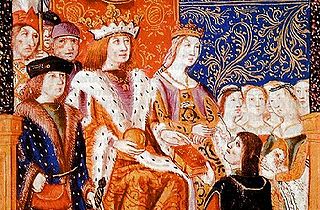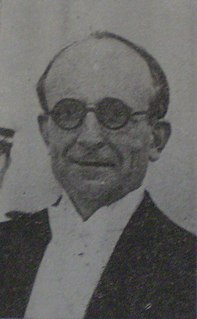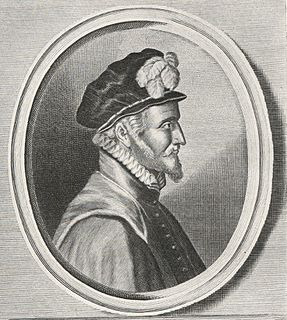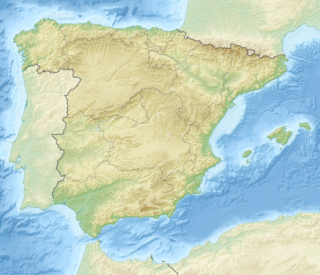Don Enrique Pérez de Guzmán y Fonseca, 2nd Duke of Medina Sidonia (d. 1492), became the second Duke in 1468. Born out of wedlock, his birth was later legitimised by the "Reyes Católicos" Ferdinand and Isabella, and consequently he obtained the right to inherit the title from his father, Juan Alonso de Guzmán. He participated in the Conquest of the Emirate of Granada, and was granted in 1478 the title of Marquis of Gibraltar.
Don, abbreviated as D., is an honorific prefix primarily used in Italy, Spain, Portugal, Latin America, and the Philippines.
Legitimacy, in traditional Western common law, is the status of a child born to parents who are legally married to each other, and of a child conceived before the parents obtain a legal divorce. Conversely, illegitimacy has been the status of a child born outside marriage, such a child being known as a bastard, or love child, when such a distinction has been made from other children. In Scots law, the terminology of natural son or natural daughter has the same implications. The prefix "Fitz-" added to a surname sometimes denoted that the child's parents were not married at the time of birth.

The Catholic Monarchs is the joint title used in history for Queen Isabella I of Castile and King Ferdinand II of Aragon. They were both from the House of Trastámara and were second cousins, being both descended from John I of Castile; on marriage they were given a papal dispensation to deal with consanguinity by Sixtus IV. They married on October 19, 1469, in the city of Valladolid; Isabella was eighteen years old and Ferdinand a year younger. It is generally accepted by most scholars that the unification of Spain can essentially be traced back to the marriage of Ferdinand and Isabella. Some newer historical opinions propose that under their rule, what later became Spain was still a union of two crowns rather than a unitary state, as to a large degree Castile and Aragon remained separate kingdoms, with most of their own separate institutions, for decades to come. The court of Ferdinand and Isabella was constantly on the move, in order to bolster local support for the crown from local feudal lords.
In those days, according to historian Salvador de Madariaga, he was considered the wealthiest man in Spain. [1]

Salvador de Madariaga y Rojo was a Spanish diplomat, writer, historian and pacifist. He was nominated for the Nobel Prize in Literature, and the Nobel Peace Prize.






